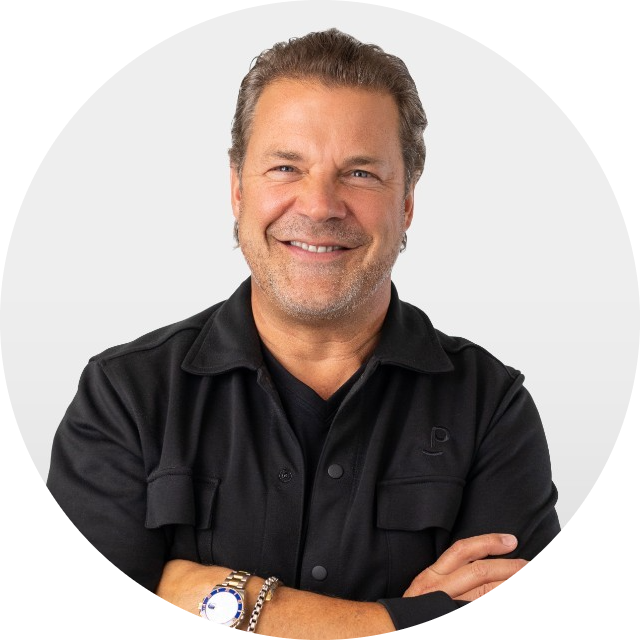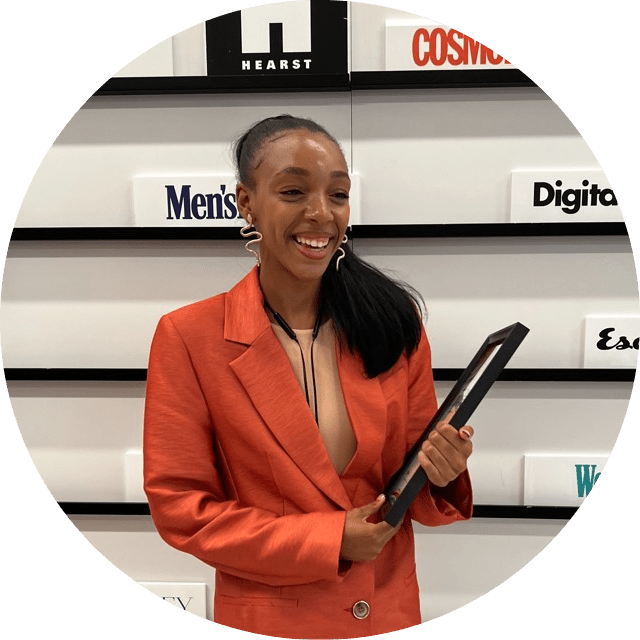How Gen Zers are rethinking resumes as native personal social media storytellers

When a global pandemic puts major gaps in your resume because of its halt of internships and other opportunities, early professionals need to consider what else they can add to show their skills and special qualities.
For Gen Zers, that means dedicating a part of your resume for your social media engagement and personal branding.
“We’ve never seen it more prominent that people are using their social media presence inside of their resume and doing it proudly,” said Jess Elmquist, CHRO of employee experience platform Phenom. “You saw the generation beforehand, in the last 10 years, shying away or trying to hide their social media presence and just focus on their professional life. There is now a blending of the two, where it’s ‘here is my life and let me actually tell you that storyline of – not only the core things that I’m doing around my education or work experience – but also my side hustles that I’m proud of.’”
Elmquist calls it transparent resumes: the idea that someone is sharing entirely who they are and what they are about. It’s different from an elongated, two-page resume that we’ve seen in years past.
“It’s being able to tell a story,” said Elmquist.
Shola West is one of those Gen Zers who did just that. She is a 22-year-old who took the time to research, network and go to events before jumping into her career in the media industry. She ended up landing a job at a media agency, where she was warned that she was the only person who didn’t have media or agency experience. West originally started by growing her LinkedIn engagement and found that while her CV got her foot in the door, it was her profile that made her stand out to the recruiter.
“They really liked my grit, determination and personal brand on LinkedIn,” said West, who also created a TikTok account to share her work experience and has gained over 12,000 followers. “That’s a key part where people always assume a CV alone is good enough, but in my experience, I found that personal branding has allowed me to stand out even though I don’t have a degree or the exact amount of experience.”
West said it was her personal branding that made her stand out and ended up even getting her a promotion at her current job. It’s also the same reason why so many other Gen Zers are also adding their achievements with their own social media to their resumes. In West’s case, she added it to a section called personal achievements, whereas someone else might include their personal achievements as awards or something else.
“It’s demonstrating who you are on some sort of platform, whether it’s Youtube, LinkedIn, TikTok or all of them,” said West.
Adding social media engagement isn’t just specific to advertising or marketing companies either, although it might be seen more there because it helps the candidates’ credibility.
“Being able to showcase the followers you have and the content you create is important, especially if you want to join a marketing department,” said Glekeria Kalathas, talent acquisition manager at engineering and science services company Actalent. “It’s a big part of the future, so I think Gen Z can only benefit by keeping it on their resume.”
In other positions, though, like accounting and finance for example, social media experience can bring another level of innovation and creativity to a role and can show other skills like networking and sharing information in a fun, informative way.
“I see it all the time,” said West. “There are nurses who post ‘day in the life’ [videos] for example. Anyone can be a thought leader in any space. It diversifies industries and raises awareness about different jobs.”
Recruiters and workplace experts say they’ve seen an increase in the number of resumes that include social media engagement information and personal branding details.
Janine Blacksley, director of Walters People, which is part of recruitment firm Robert Walters, says that Gen Zers are overall taking a more holistic approach to their resume, including side hustles and hobbies as well.
“Gen Z’s resumes are more patchwork, think more passion projects, creatively-driven work experience and side hustles,” said Blacksley. “Gen Z are building their experience and abilities in lots of different directions that aren’t directly aligned to their professional career, meaning they have varied skill sets which they may be able to bring to the role.”
Aside from this, she’s seen Gen Zers shy away from highlighting their GPAs, as it’s less about getting good grades and more about networking and events, volunteering and projects, training opportunities and more. And they are highlighting their career gaps, which is different from in the past when having a gap on your resume was regarded as a red flag to prospective employers, and something to be covered up or accounted for by candidates.
Meanwhile, employers looking past traditional higher education backgrounds on CVs will also widen the net of diverse candidates, with applicants assessed for their attitude, personality, and personal-branding skills rather than whether or not they have a degree.
Blacksley said Gen Zers ask questions during job interviews like “what other industries and roles does this align with?” That shows that they have a wider career journey. This is different from a traditional candidate who wants to hear about the career path at that exact company.
To keep in step, recruiters are also evolving to better understand these new resumes and what to look out for. While millennials might have been more like incomers into social media culture, Gen Zers have been intrinsically linked with it, having been born into it. Elmquist says if they don’t include it on a resume, it’s in a way akin to asking them to not show up as their whole person.
“It’s retraining the organization and hiring leaders as well as recruiters and talent acquisition specialists to be thinking about resumes and talent differently and kind of blow up your expectations of how it was in the past and making sure you are addressing talent in a way that makes sense today,” said Elmquist. “It’s asking organizations to understand moving into a place where we need to use a new language to really support the talent. We shouldn’t shoehorn Gen Z into an old methodology because things are moving really quickly around even just resumes.”
Gen Z’s approach might even encourage other professionals in the industry to think about their resumes differently, too.
“My hypothesis is as Gen Z has redefined how they’re looking at the CV and resume, I do think it’s going to give permission to people up the chain chronologically to manifest their resume in a different way,” said Elmquist. “It’s a more transparent, real and authentic way of talking about who you are and why you want to work at a certain place.”


